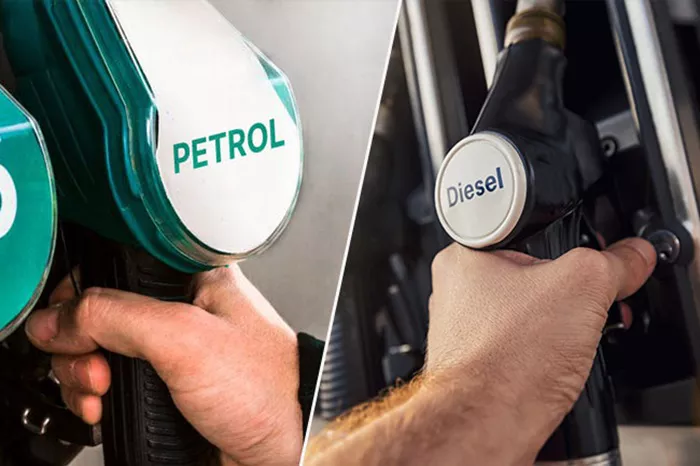When choosing between diesel and gasoline vehicles, cost effectiveness is a major consideration. Consumers often weigh factors like fuel prices, maintenance costs, and vehicle longevity. This article will explore these aspects, providing a comprehensive comparison to determine which fuel is more cost effective.
Understanding Diesel and Gasoline
What is Diesel?
Diesel is a type of fuel derived from crude oil. It is used in compression-ignition engines, commonly found in trucks, buses, and some cars. Diesel fuel is known for its high energy density.
What is Gasoline?
Gasoline, also derived from crude oil, is used in spark-ignition engines. It powers most passenger cars. Gasoline is known for its lower energy density compared to diesel.
Fuel Costs
Price Per Gallon
One of the first aspects to consider is the price per gallon at the pump. Historically, diesel tends to be more expensive than gasoline. This price difference is due to several factors, including higher taxes and the cost of refining diesel fuel.
Fuel Economy
Diesel engines are typically more fuel efficient than gasoline engines. A diesel engine can often achieve 20-30% better fuel economy. This means that even though diesel fuel costs more per gallon, the vehicle may travel further on a gallon of diesel than on a gallon of gasoline.
Long-Term Fuel Savings
Over the long term, diesel vehicles may offer significant fuel cost savings due to their superior fuel economy. For example, a diesel vehicle that gets 30 miles per gallon (mpg) compared to a gasoline vehicle that gets 25 mpg will save money on fuel over time, even if diesel costs more per gallon.
Vehicle Costs
Purchase Price
Diesel vehicles often have a higher upfront cost compared to their gasoline counterparts. This higher price is due to the more robust construction required for diesel engines, which must withstand higher compression ratios.
Maintenance Costs
Maintenance costs for diesel engines can be higher. Diesel engines have more complex fuel injection systems and require more frequent oil changes with higher quality oil. However, diesel engines are known for their durability and can often run longer before needing major repairs.
Depreciation
Diesel vehicles tend to hold their value better than gasoline vehicles. This is partly due to their durability and partly because of the higher demand for used diesel trucks and SUVs. Lower depreciation rates can offset some of the higher initial purchase costs.
Longevity and Durability
Engine Longevity
Diesel engines are built to withstand higher stress and typically have a longer lifespan than gasoline engines. It’s not uncommon for a diesel engine to run for 300,000 miles or more with proper maintenance. This longevity can result in significant cost savings over the life of the vehicle.
Durability of Components
The components of diesel engines, such as the fuel system and turbochargers, are designed to last longer. This durability means fewer replacements and repairs over the vehicle’s lifetime, contributing to overall cost effectiveness.
See also: What Is The Best Quality Gasoline? [Revealed]
Performance
Towing and Hauling
Diesel engines provide more torque than gasoline engines, making them better suited for towing and hauling heavy loads. This makes diesel a preferred choice for trucks and commercial vehicles. The ability to handle heavy loads more efficiently can translate to cost savings in commercial applications.
Driving Experience
Diesel engines offer a different driving experience compared to gasoline engines. They provide more low-end torque, which means better acceleration from a stop and improved performance under load. However, gasoline engines tend to be smoother and quieter, which some drivers may prefer.
Environmental Impact
Emissions
Diesel engines have been criticized for their higher emissions of nitrogen oxides (NOx) and particulate matter compared to gasoline engines. However, modern diesel engines with advanced emissions controls have significantly reduced these pollutants. Nevertheless, gasoline engines generally produce fewer harmful emissions, which can be a factor in urban areas with strict air quality regulations.
Fuel Production
The production of diesel fuel requires more energy than gasoline, contributing to a higher overall carbon footprint. However, the improved fuel efficiency of diesel engines can offset this higher production impact over the vehicle’s lifespan.
Conclusion
Weighing the Factors
When determining whether diesel or gasoline is more cost effective, several factors must be considered:
Fuel Costs: Diesel is generally more fuel efficient, offering long-term savings despite higher per-gallon costs.
Vehicle Costs: Diesel vehicles have higher upfront and maintenance costs but depreciate more slowly and last longer.
Performance: Diesel engines excel in towing and hauling, making them ideal for heavy-duty applications.
Environmental Impact: Diesel has a higher initial environmental impact but can be mitigated by fuel efficiency and advanced emissions controls.
Final Verdict
For consumers who drive long distances, frequently tow heavy loads, or plan to keep their vehicle for many years, diesel may be the more cost effective option despite the higher initial costs. On the other hand, for those who prefer a quieter, smoother driving experience and lower emissions, gasoline might be the better choice. Ultimately, the decision depends on individual needs and priorities.
By considering all these factors, consumers can make an informed choice that balances cost, performance, and environmental impact.
Related topics:
How Is Gasoline Made From Crude Oil?

